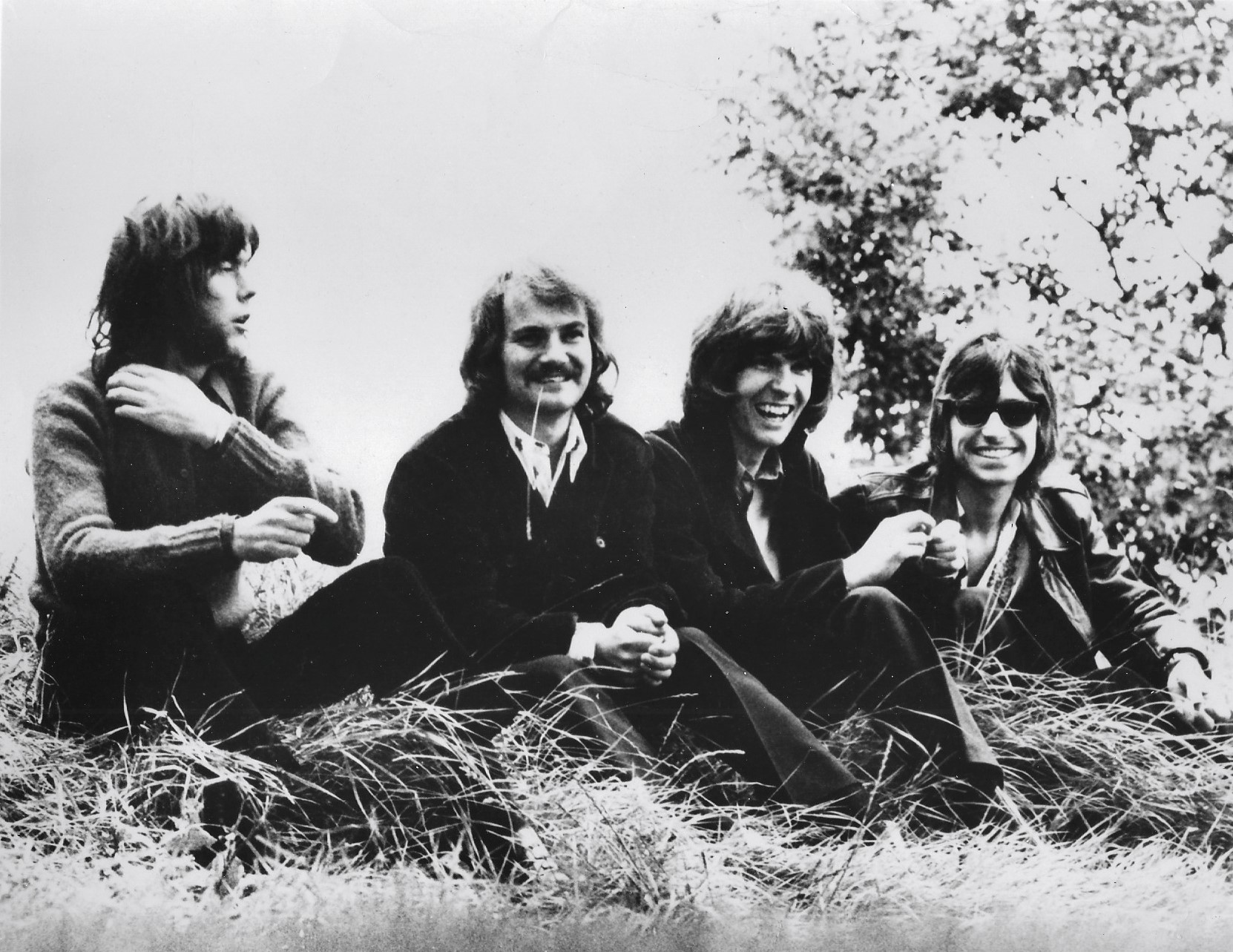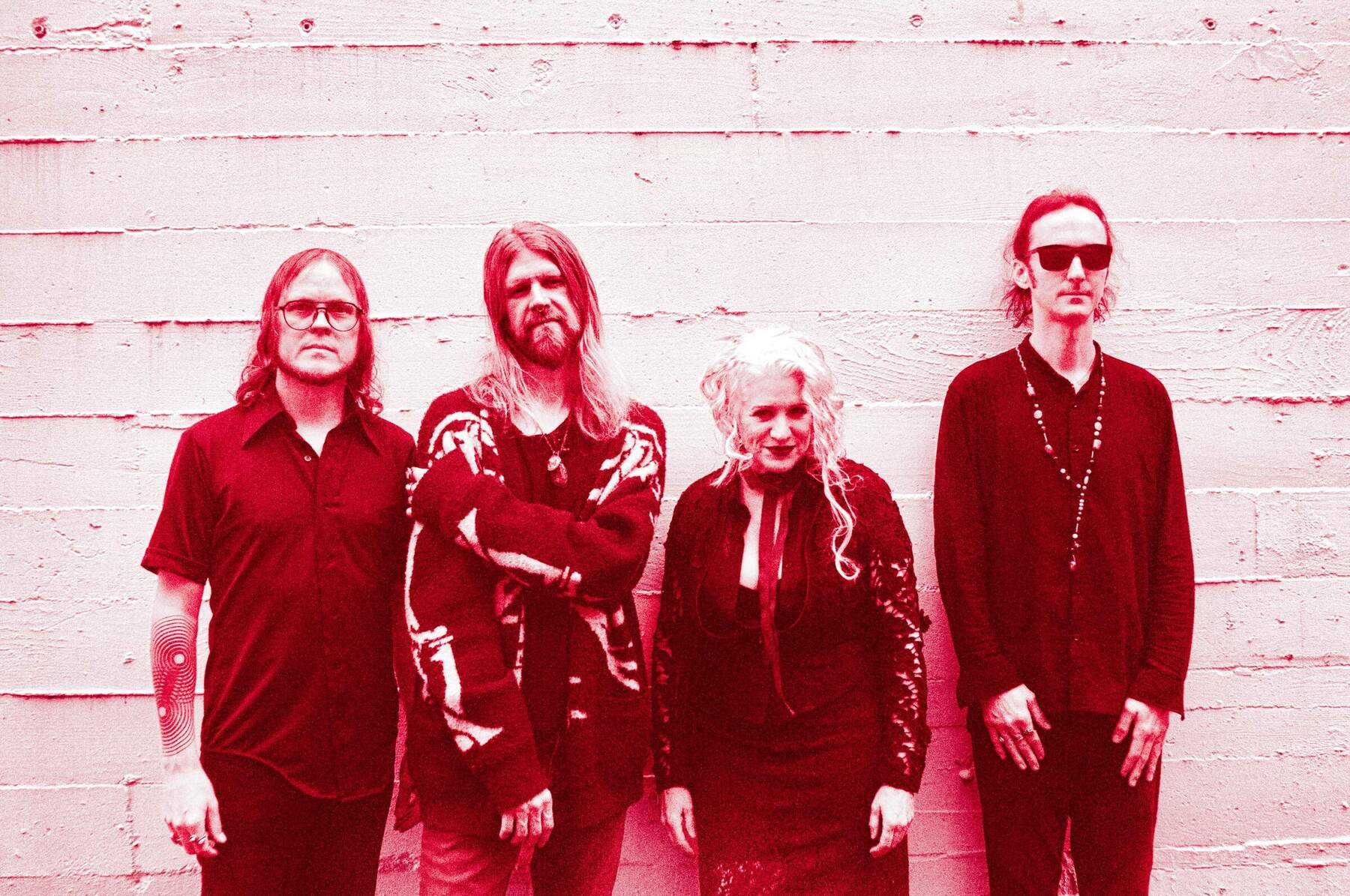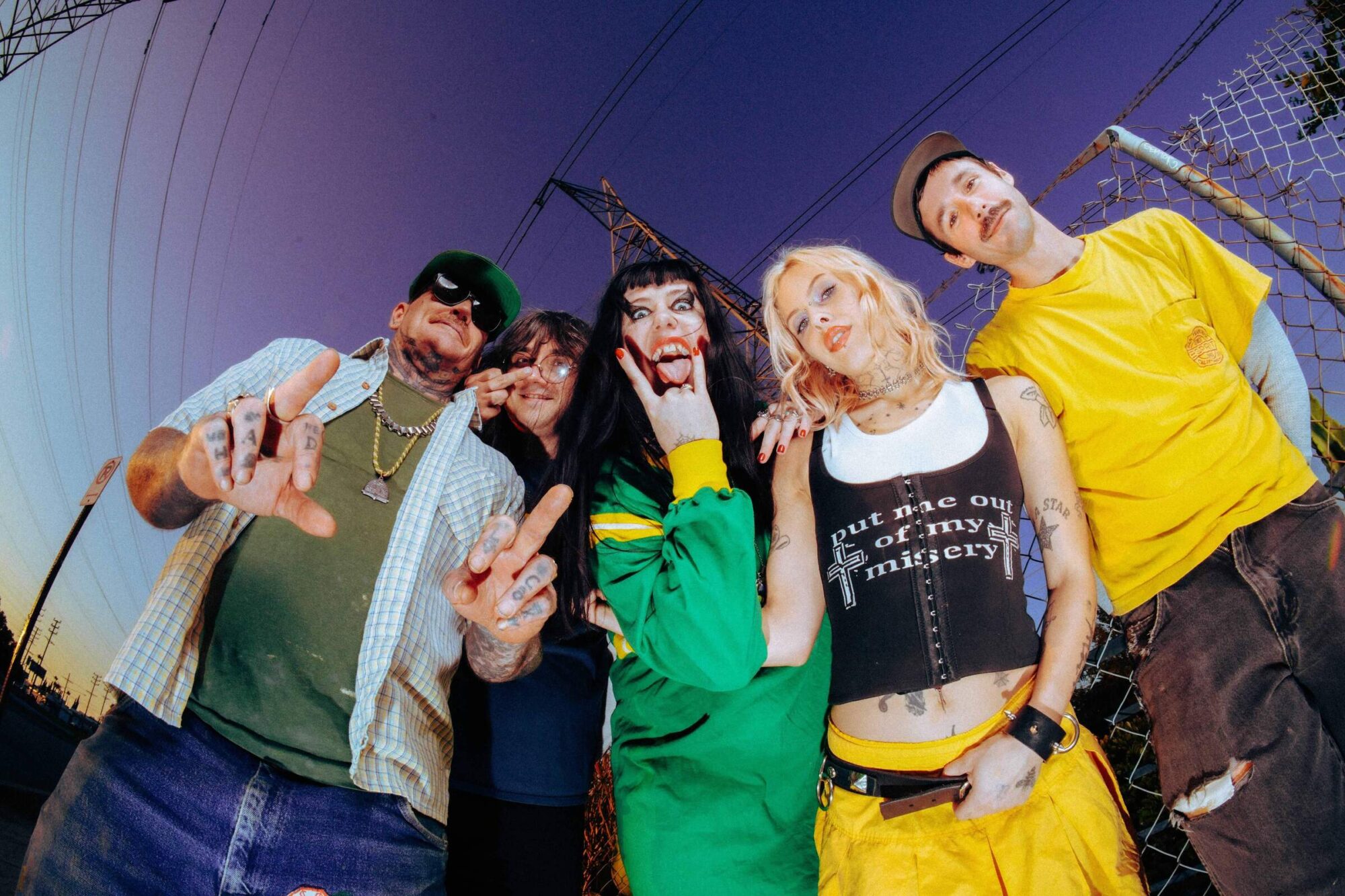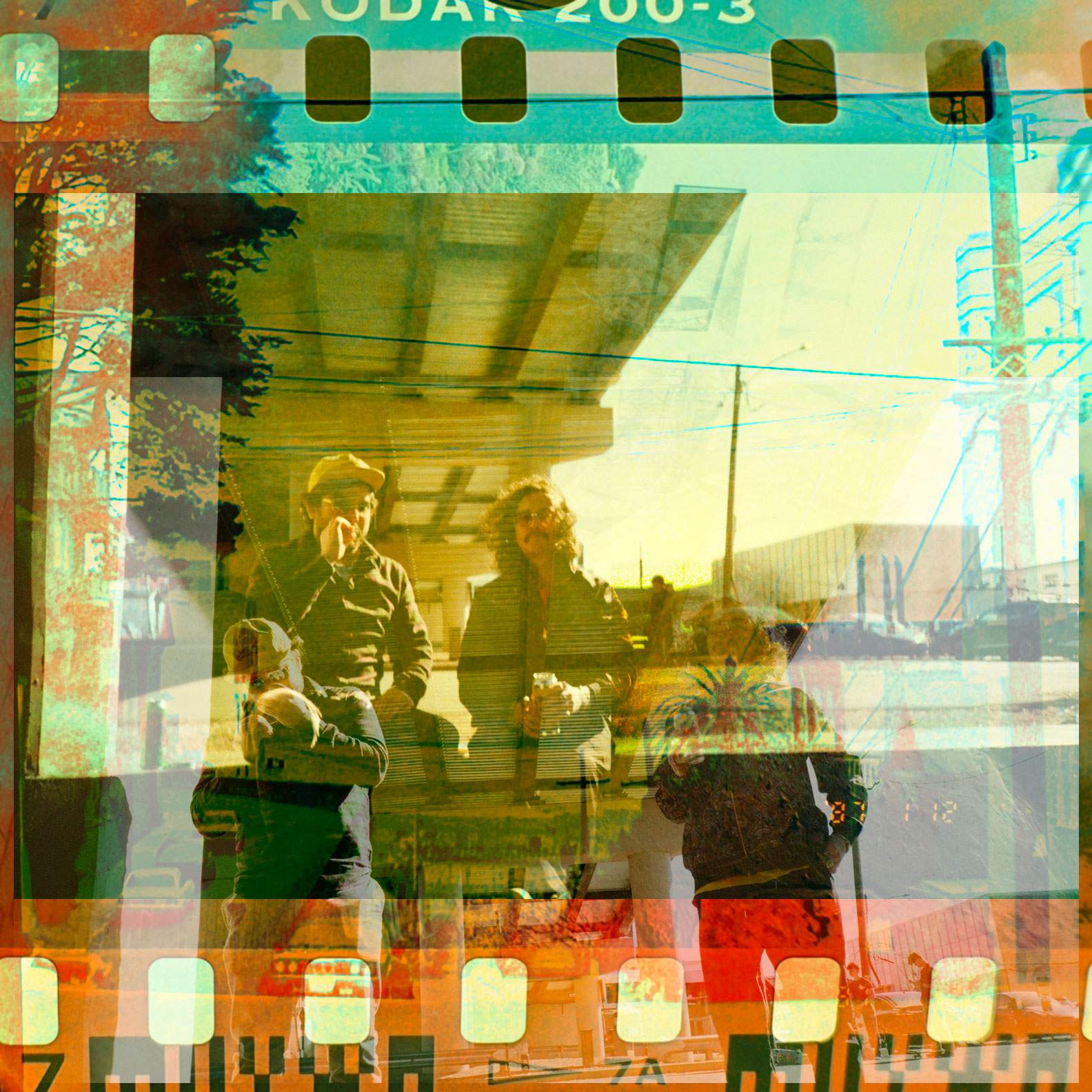Chris White on The Zombies, Argent, and Unveiling the Lost CBS Duffy Power Album
Chris White—founding member, bassist, and songwriter for The Zombies—has spent much of his post-Zombies career championing overlooked talents, among them the lately released lost recording by Duffy Power.
As a producer and collaborator, his ear for nuance and emotional depth has helped shape some of British rock’s more enduring cult artifacts. Among them is Duffy Power’s long-buried 1971 CBS album, Hell Hound, recently released in full by Think Like A Key Music. White, who produced the sessions alongside his former Zombies bandmate Rod Argent, now reflects on a project that, for decades, lingered in the shadows of history.
Hell Hound was meant to be a landmark for Duffy Power, a mercurial talent who had already lived many chapters in music, from early rock ‘n’ roll stardom under Larry Parnes to deeply personal blues and singer-songwriter explorations. Yet the album never saw the light of day. CBS shelved it without any explanation, and the recordings sat forgotten in tape archives, remembered only by a few who had been part of the sessions.
Listening now, it’s impossible to ignore what was lost. Power’s voice is a study in vulnerability and control, simultaneously haunted and soulful. White’s production is restrained and luminous, allowing space for the song to breathe. Argent’s piano work adds a subtle grandeur, never overwhelming but always essential.
For Chris White, Hell Hound is much more than just a rediscovered album. It is a way to restore dignity to an artist who deserved so much better from the industry that let him down. For listeners, it offers a rare and intimate chance to experience Duffy Power at his most honest and real.
Anchored by Danny Thompson’s deep, earthy basslines, Terry Cox’s crisp, driving drums, and Ollie Halsall’s masterful guitar work, the record pulses with a true intensity.
Chris White, bassist and songwriter for The Zombies, crafted some of the most distinctive melodies of 60s British rock. Beyond his work with the band, he shaped the sound of artists like Colin Blunstone and Argent, leaving an indelible mark on that era’s music. In the following interview, we explore not only the recently released Duffy Power album but also delve into The Zombies’ Odessey and Oracle legacy and Chris’s ongoing creative journey.
You can purchase Hell Hound: The Lost 1971 CBS Album by Duffy Power here!

“Songs are the bookmarks of all our lives”
The release of Hell Hound: The Lost 1971 CBS Album by Duffy Power after all these years is pretty special. Can you take us back to the early ’70s? What was the initial impetus for this collaboration between Duffy Power and members of Argent, and what were your collective aspirations for this project at the time?
Chris White: When Rod and I decided to continue working together after the demise of The Zombies, after the album Odessey and Oracle didn’t sell in the UK, we decided to form a production company called Nexus and continue writing and producing, starting with Rod’s new group Argent. We knew Duffy, as he was also signed to our publisher at the time. We had also worked with Duffy at concerts and admired his obvious quality as a singer, blues artist, and writer. Our hope was to have a hit record with him and give him the success he deserved.
As co-producer alongside Rod Argent, what was the dynamic like in the studio during the Hell Hound sessions? Given Duffy Power’s evolution from a popster to a passionate bluesman, and Argent’s progressive rock leanings, how did you navigate blending these distinct musical sensibilities to achieve the album’s unique “blues-rock beast” sound?
Rod and I always had a strong writing connection. And because Odessey and Oracle was our first collaboration as producers, it was a natural progression to continue working together. In fact, after working on that first production together, Rod generously suggested that we put our joint names on everything we wrote from then on, because one successful song would keep us going financially. Our songwriting was always a combination of ideas and suggestions. Rod had had success before with She’s Not There and Tell Her No in America. We had also shared a flat in London, so exchanging musical ideas became a normal state of affairs, which carried over to the studio. Argent were brilliant as a unit and as individual musicians, so we had no concerns about blending with Duffy.

Colin Harper’s liner notes dig deep into the making of the album. Is there a particular story or tricky moment from the Hell Hound sessions that really sticks with you and sums up what it was like working on it?
Originally, we recorded Hummingbird as a first single for CBS. But just before we played it to CBS, it was released by B.B. King, so CBS decided to release our B-side as the first track. As far as we were concerned, both tracks were just as good. We didn’t have many tricky moments in the studio; most of them came trying to get the album released. There were some great players on those sessions, with Jerry Boys as engineer. A lot of it felt so easy when we were recording because we had a lot of belief in each other.
Beyond the music itself, Hell Hound is a bit of a lost treasure from British music history. How does it feel to see it finally out there after 50 years? What do you hope people take away from hearing this once-hidden work, both about Duffy and about your own role in it?
It is great to see Duffy recognised for the talent he was. My sons, Matthew and Jamie White, suggested releasing his album after they discovered it among the many tapes unearthed from an attic, where they had been stored for 50 years. Matthew had previously worked at Abbey Road, and Jamie had toured with the new line-up of The Zombies in America with his own band, Et Tu Bruce, so they both had a great deal of experience in music. When CBS decided not to release Duffy’s album, it was returned to us, which was standard in our contracts. Rod and I had tried to find a deal for the album again in the 1990s, as every time I listened to it, it sounded so fresh. To finally be able to release it now is incredible. It is one of my favourite productions over the years. I am delighted people get to hear again how talented Duffy was.
As a primary songwriter for The Zombies, particularly on Odessey and Oracle, your lyrical contributions were instrumental. How did your songwriting partnership with Rod Argent evolve during that intense creative period, and what were the individual strengths each of you brought to the collaborative process that shaped iconic tracks like Care of Cell 44 or This Will Be Our Year?
Both Care of Cell 44 and This Will Be Our Year were written by each writer as solo compositions. It was later that Rod suggested joint writing credits. Both of us recognised the collaborative strengths in working on ideas together. As the main songwriters for The Zombies, we had always bounced ideas off each other, and when we moved in together before Odessey and Oracle, our collaboration became stronger. Generally, if one of us was not enthused by a song the other was writing, we would change or abandon it, as we trusted each other’s instincts.
Odessey and Oracle was famously self-produced under tight budget constraints at Abbey Road. Can you elaborate on the creative decisions and innovative techniques you and Rod employed to achieve such a rich and timeless sound, especially considering the limitations you faced? Were there specific moments of breakthrough or profound challenge during those sessions?
Odessey and Oracle was recorded on four-track. No UK studio had eight-track when we started. We were given £1,000 to record Odessey and Oracle in mono. When CBS UK said that stereo was becoming popular, they asked us to mix it in stereo as well. Rod and I had to pay from our own pockets, as we had spent the original budget on the mono mix. It was thanks to The Beatles—they had just finished recording Sgt. Pepper when we first went into Abbey Road—that the engineers there, Geoff Emerick and Peter Vince, devised a way to bounce four-track to another four-track machine. Mixing was fun.
John Lennon had also left his Mellotron in Abbey Road when we went in, after rehearsing the songs, and Rod’s eyes lit up. He found it a very exciting addition to the songs.

After The Zombies, your partnership with Rod Argent continued into the band Argent, where you took on extensive production and songwriting roles, notably co-writing Hold Your Head Up. How did your approach to songwriting and production shift from The Zombies to Argent, reflecting the new band’s progressive rock direction and longer-form compositions?
Rod magnanimously suggested putting both our names on each song we worked on, and the first hit song we did so was Hold Your Head Up, which was a song that I had written most of at the start. Rod wrote that fantastic instrumental section of it. That made the song ideal for the musically progressive ideas for the group Argent. The biggest shift was that I was no longer performing, so I could be in the producer’s chair full time as a constant presence in the control room while Rod was managing the dual responsibilities of playing and producing. I still aimed to write three-minute pop songs, which would then take on their own life once Argent started rehearsing them.
Looking back at your dual role as both a key songwriter and producer for Argent, how did you balance these responsibilities? Can you discuss a specific Argent album you produced, like All Together Now or Nexus, and explain your vision for its sound and how you guided the band to achieve it in the studio?
Having developed from school age at the start of creative working together, it was a natural and instinctive process for us to develop the style of Argent. It was mainly Rod’s idea about the direction Argent developed, although it was the band’s idea to call it Argent (Rod was reluctant at first). Songwriting continued as usual, although it was always helpful to have a band with their own sound to write for. Rod and I generally wrote separately but contributed to each other’s songs. It was only for the last two Argent albums that we stopped putting our joint names on songs, mostly because as the band’s sound progressed I found I was contributing less to Rod’s songs and my songs were not making the final cut. As a producer, I tried to capture the moment and offer direction.
Throughout your career, you’ve shown an ability to adapt and contribute across different musical styles. What core principles or philosophies have consistently guided your songwriting and production decisions, whether working with The Zombies, Argent, Colin Blunstone, or other artists?
Songs and production ideas are in the air around us all at every moment. You just have to tune in to those ideas. Rod’s keyboard genius drove him on expertly. Each artist had their own style, and we just developed it. We also used great arrangers like Chris Gunning, who wrote some great sensitive arrangements for Duffy and others. My philosophy has always been to keep working, continue creating, and see what happens.
The Chris White Experience series is a fascinating endeavour, unearthing decades of previously unheard material. What was the catalyst for embarking on this extensive archival project, and how did your sons discovering the tapes influence its initiation and direction?
My son, Jamie, had the idea to release some of my previously unheard recordings before The Zombies were inducted into The Rock and Roll Hall of Fame, but it was Matt’s suggestion that both he and Jamie give up their jobs and join our company, Sunfish, after they discovered how many tapes I had been keeping in the attic. There were hundreds of reel-to-reels, DATs, Umatic tapes, hard drives, CDs, multi-tracks, acetates, and cassettes of music from the 1960s onwards. I was amazed by quite how much had accumulated. We began the archiving process, and I was blown away by some of the findings, particularly the incredible performers whose work had not been given the opportunity to be heard.
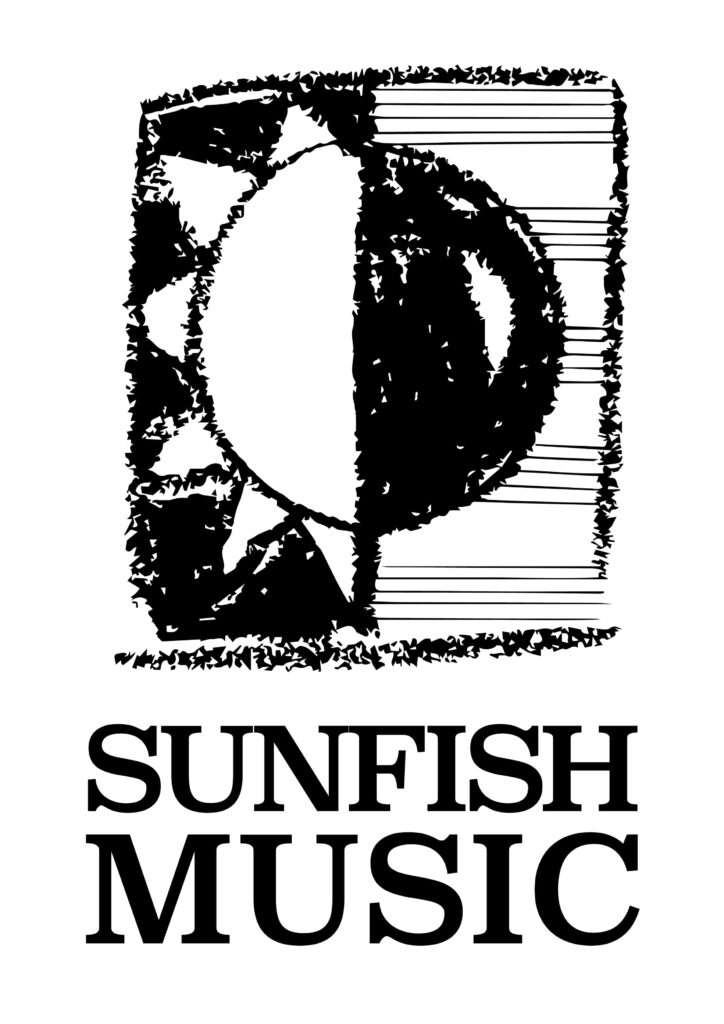
Vivienne Boucherat (my writing partner, singer, and wife) and I had been working together for Sunfish since the 1990s, and having unearthed all those old tapes and recordings, we thought, why not. Clare (Jamie’s wife) suggested calling it The Chris White Experience — not my idea, but appropriate.
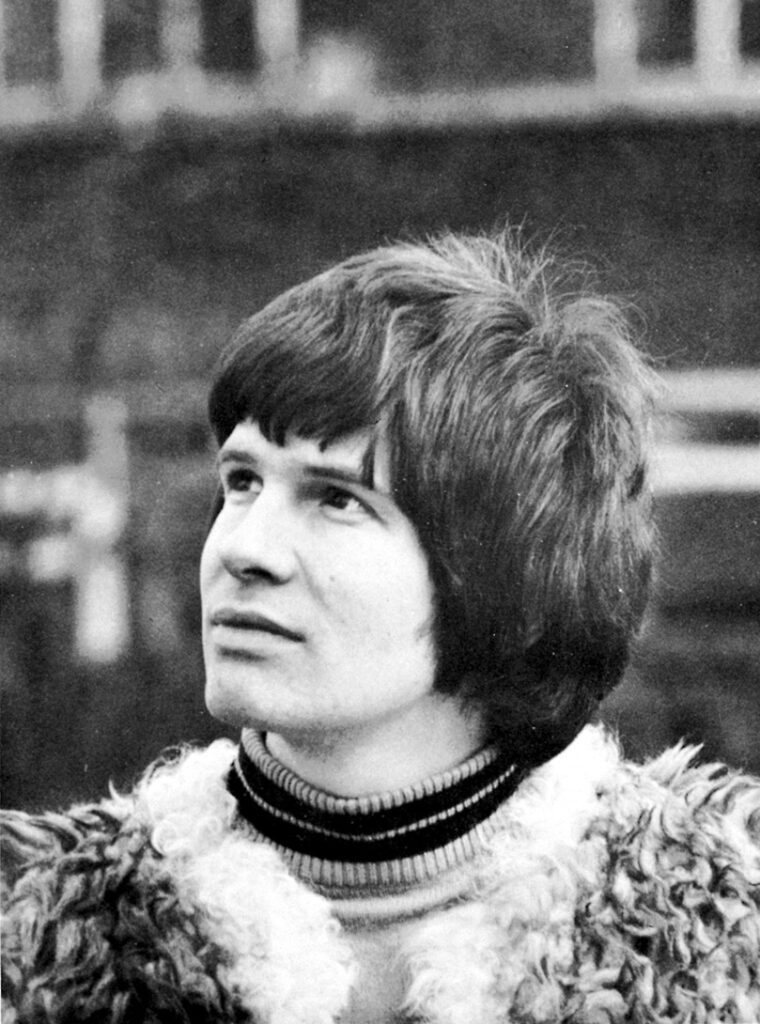
“Listening to these recordings has been a joy — real gems given a new lease of life.”
With over 50 years of material to draw from, the curation process for “The Chris White Experience” must be immense. Can you walk us through how you approach selecting tracks for each volume? What criteria do you use, and what are some of the biggest challenges you’ve faced in sifting through, restoring, and contextualizing such a vast personal archive?
Our initial idea was to split the catalogue into three strands of my work: a songwriting series, a production series, and a “Presents” series where we could showcase finished albums I had worked on in some capacity. The discovery process was enormous, beginning with having the tapes transferred by Nick Robbins at Sound Mastering. Matt and Jamie listen to everything and send Viv and me the audio to hear, and we work from there. It has been a joy to hear these recordings again. Some real gems that would have otherwise stayed lost have been given a new lease of life. Listening to the recordings has also led to me reconnecting with so many of the performers I’ve had the pleasure of working with over the years.
Not all of the tapes have been stored in an ideal environment, so the biggest challenge has been in restoration, particularly when matching audio from different sources. It can be difficult to collate an album of songs from various eras, recorded with differing equipment and transferred from different audio formats, and make it sound cohesive, but I think we’ve done a really good job so far. It’s one of the reasons why our playlisting is so important.
I left all final choices to Matt and Jamie. I was too close to all those songs; in fact, I’d forgotten some of those songs existed. More than once it has been a case of “Did I write that?” when they’ve played me something from the tapes, but unless I hear something I don’t like, I generally leave the creative decisions alone. Jamie has been responsible for most of the decisions regarding track listing. Matt was responsible for upgrading the recordings safely and sensitively.
The series features a diverse range of material, from demos and co-writes to full productions and collaborations with numerous artists. What overarching narrative or thematic threads do you hope listeners will discover as they delve into the different volumes of “The Chris White Experience”?
Our first three albums were all made up of songs I had written or co-written, and the next three volumes were from sessions I had produced for some brilliant artists across the decades. We’ve also released a wonderful album by the band Sparrow under our “Presents” banner, which I produced in 1975 but was shelved at the last minute. Most of the songs on the “Production” albums weren’t written by me; releasing them was about showcasing the incredible talents of people I have been fortunate enough to work with. Our CDs have a 20-page booklet that includes detailed recollections and credits (as best as my memory allows) for each song on the albums. The vast majority of the recordings had never been released before, so it was important to us that everyone’s writing, performance, and production contributions were recognised and registered correctly.

Are there any particular tracks or collaborations within the “Chris White Experience” series that stand out to you as especially significant or that you’re most excited for listeners to finally hear, and why?
Viv and I were introduced to a great young singer called Bianca Kinane. We wrote and recorded an album with her called White Circle (later titled Passion Has Dreams). She sang all of our compositions perfectly, and we are all still close friends to this day. We have often used her as a vocalist for our material, and a number of those recordings appear on The Chris White Experience.
The album I produced for the band Sparrow is also a hidden gem. We recorded in CBS London Studios with Mike Ross as the engineer and Mike Moran as arranger. They were fantastic musicians and vocalists, and I thought we had made a really good record. It’s a shame the label didn’t feel the same way.
There are several songs co-written with some great musicians like Tim Renwick, Andy Nye, and Matthew Fisher, and many more featuring great performers: Colin Blunstone, Rod Argent, Jim Rodford, Michael Fennelly, Stevie Lange, Russ Ballard, and Maggie Ryder among them.
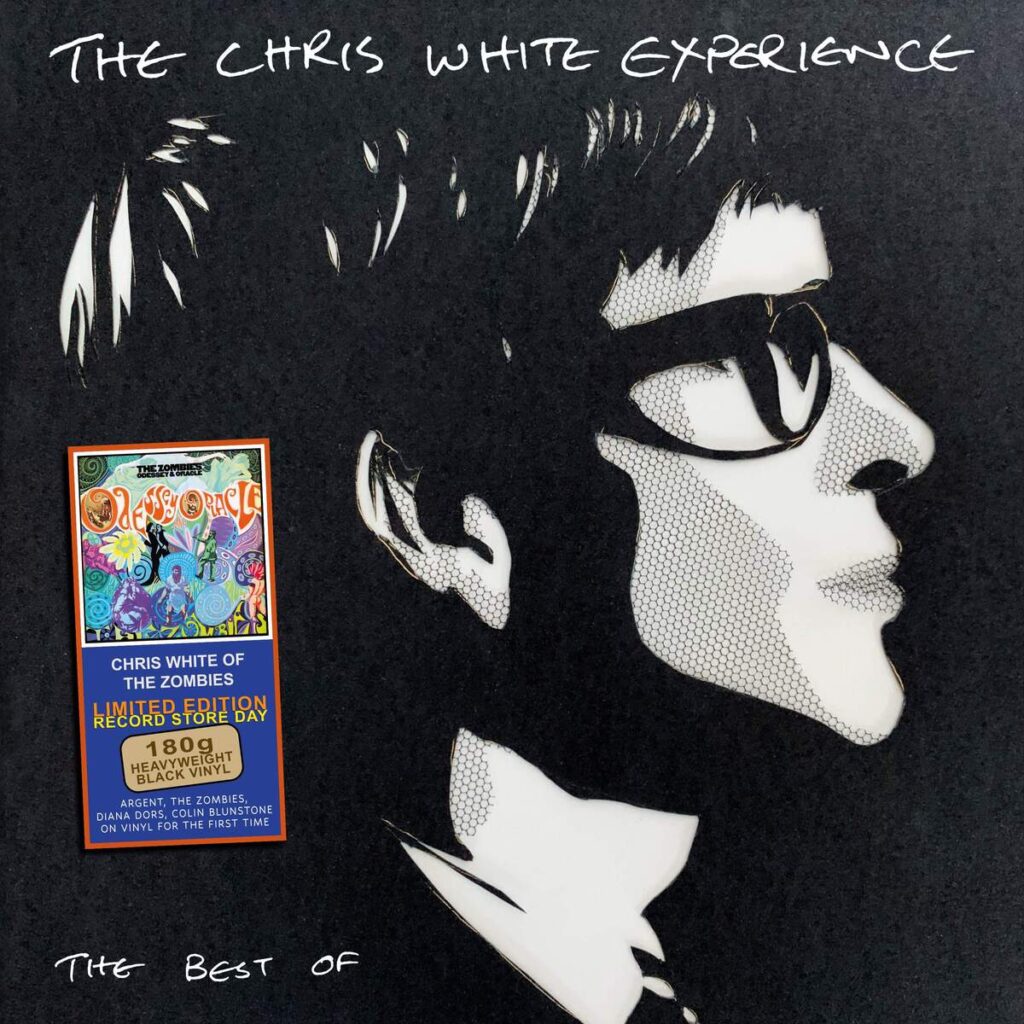
Beyond the current releases, what is your long-term vision for “The Chris White Experience”? Do you anticipate this being an ongoing project, and what kind of material might future volumes explore?
Yes, ongoing. Jamie and Matt, as publishers, are already signing up some great artists and songwriters. A lot of old friends got in contact when we started this project, which has led to us helping them recover their lost rights and recordings. We’ve released seven volumes of The Chris White Experience (and the Sparrow album), but there is a lot more to come. We’re still discovering the audio in our archive, but there are a number of albums we hold the rights to that we are planning for. The Zombies New World album from 1991 is next in our “Presents” series and will be an expanded version containing off-cuts, demos, alternate versions, and unreleased songs. There are more CWE albums on the horizon and some future collaborations involving new recordings.
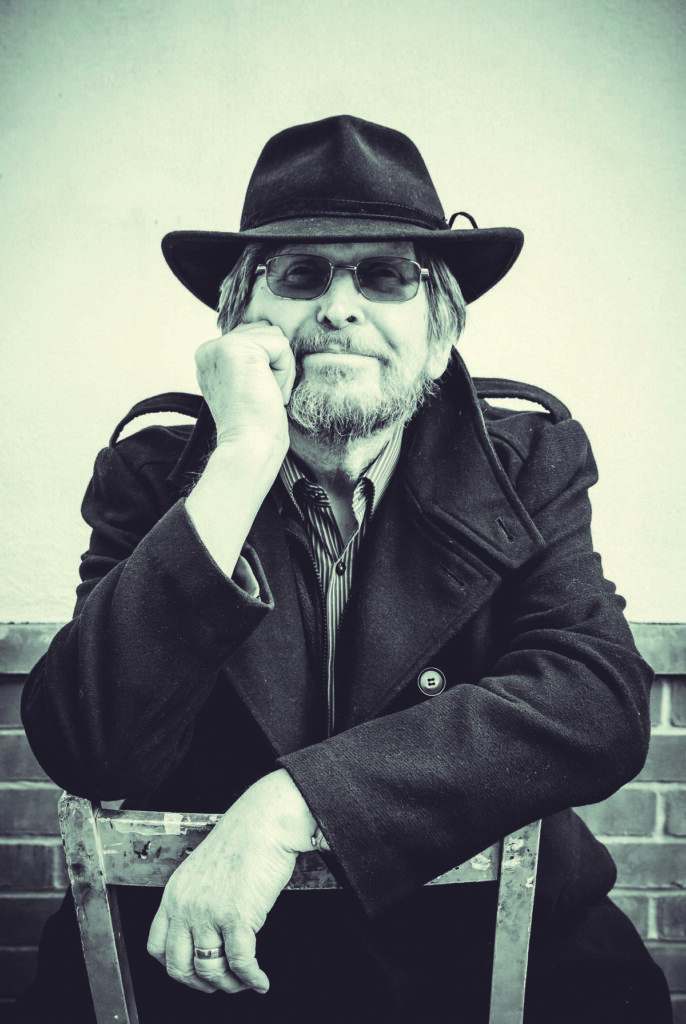
Looking back over everything from the early Zombies days to the unearthing of Hell Hound and now the “Chris White Experience,” what’s the thing that’s surprised you the most or stuck with you the longest about this whole ride through music?
How privileged and lucky I am to work with all these great artists and writers. I said when inducted into the Rock and Roll Hall of Fame, “Young musicians, whatever you do, keep writing. Songs are the bookmarks of all our lives.”
Klemen Breznikar
Headline photo: Argent Promotional Photo
The Chris White Experience Official Website / Facebook / X / Instagram / YouTube
Think Like A Key Music Official Website / Facebook / X / Instagram / Bandcamp / YouTube

